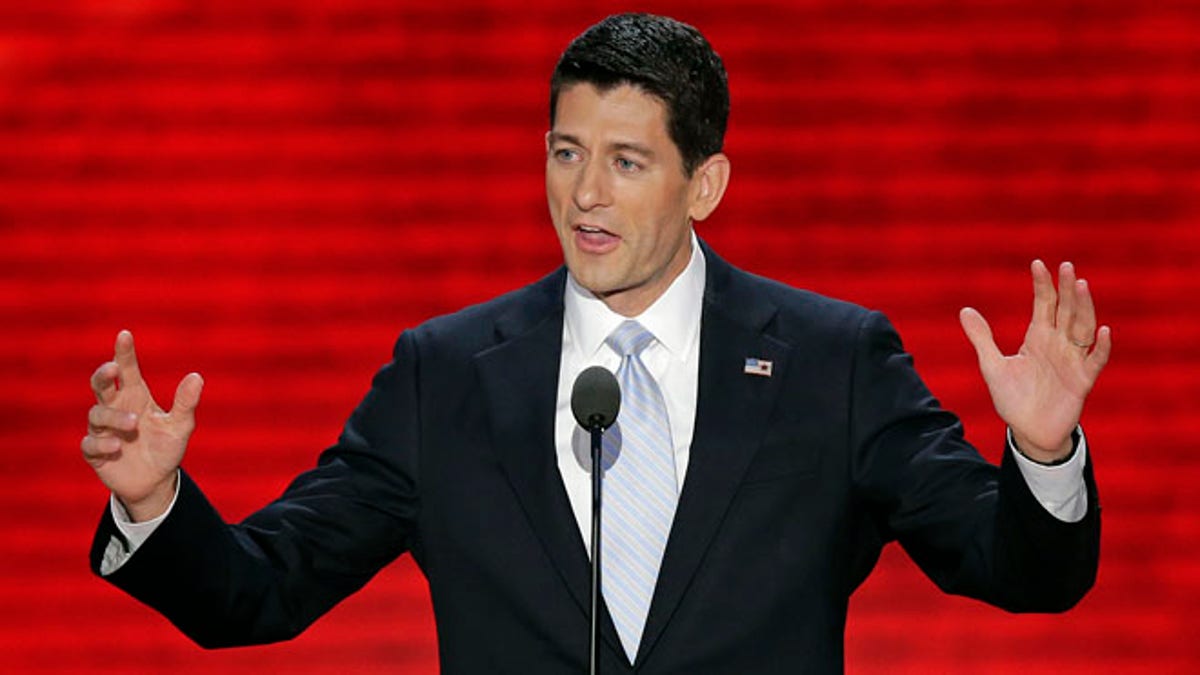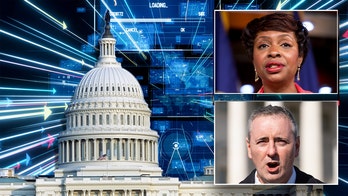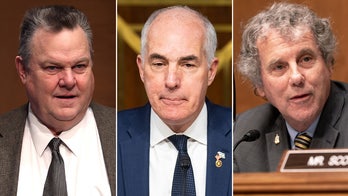
FILE: Aug. 29, 2012: Republican vice presidential nominee Rep. Paul Ryan addresses the Republican National Convention in Tampa, Fla. (AP)
Preparing for another debt showdown this summer, House Republicans advanced a bill Wednesday to protect Social Security recipients and investors in Treasury bonds if the government hits the limit of its borrowing authority.
The House Ways and Means Committee passed a bill that would exempt interest and principal payments on Treasury bonds from the statutory debt limit. It would also exempt interest payments to the Social Security trust funds.
The bill passed 22 to 14 in a straight party line vote, with Republicans in favor and Democrats opposed. The full House is expected to take up the bill sometime after Congress returns from next week's vacation. Democrats, however, are expected to block the bill in the Senate.
Republicans say the bill would avoid an unprecedented default, even if Congress and President Obama can't agree on a plan to increase the government's ability to borrow.
"The whole purpose of this bill is to take default off the table," said Rep. Paul Ryan, R-Wis. "Regardless of the political hysterics in Washington, we will not default."
Democrats call the bill the "Pay China First Act," saying it prioritizes payments to foreign investors over funding important domestic programs, including benefits for veterans, soldiers, students and the elderly.
"Where in the bill are the benefits are veterans protected? Is there language protecting Medicare payments and seniors in this bill? Do they get top billing over foreign banks?" asked Rep. Joseph Crowley, D-N.Y. "This bill will do nothing to lower our debt but it will make sure that foreign banks in Switzerland and China are paid."
In January, Congress suspended the government's borrowing limit until May 18, though Treasury officials are expected to take actions to delay a default until later this summer, perhaps in August.
If Congress can't agree on a plan to increase the debt limit, Washington could be headed for another showdown over government spending and borrowing. In July 2011, Congress took the federal government to the brink of default, and major rating agencies downgraded the federal government's credit rating for the first time.
Since then, the issue has been politically toxic. In last year's congressional elections, both Democratic and Republican challengers gleefully reported the number of times their incumbent opponents had voted to increase the debt limit, a vote that used to be routine.




